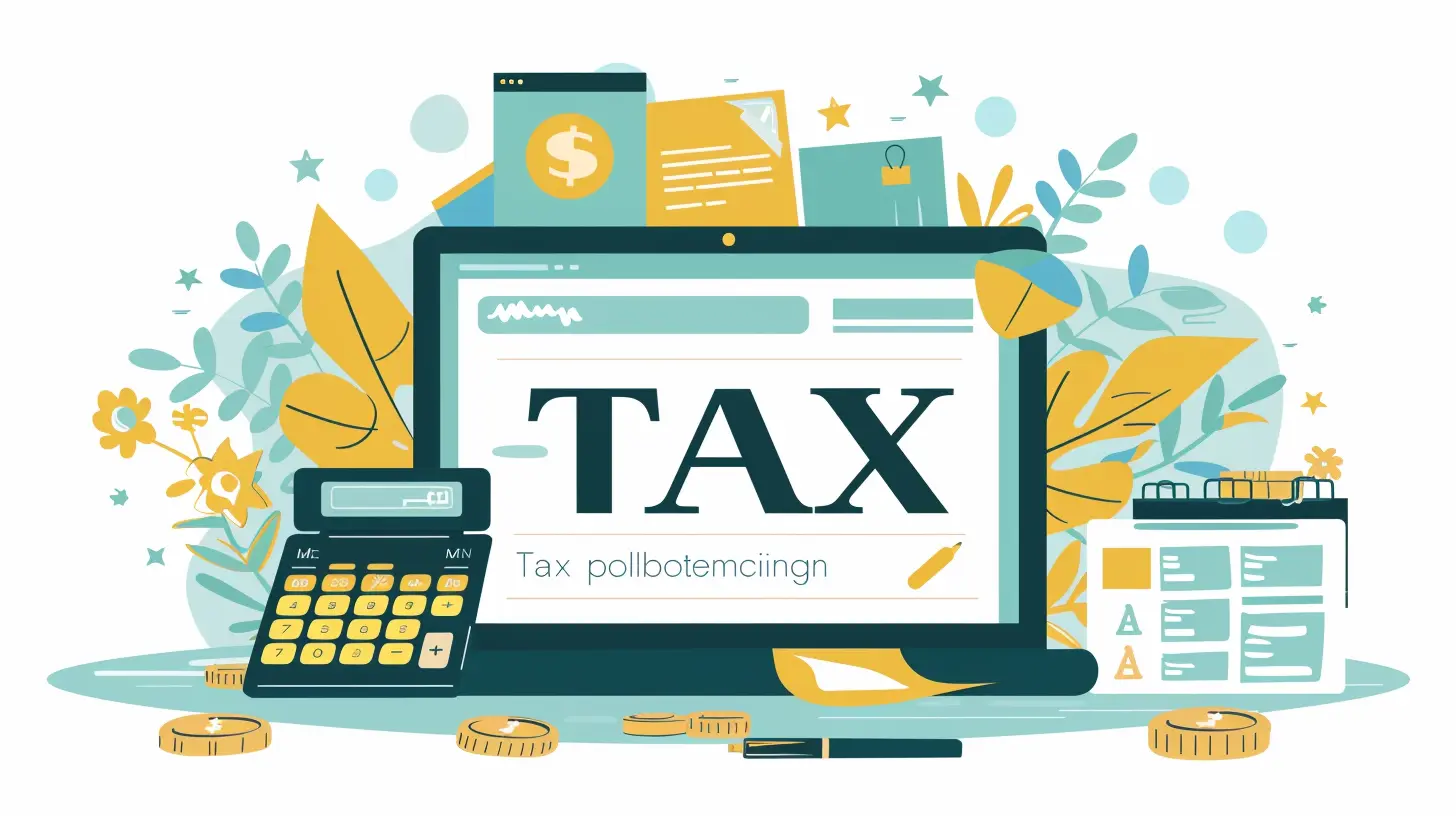16 April 2025
Working from home has its perks—no more long commutes, more flexibility, and the ability to work in pajamas. But did you know it can also save you money on taxes? If you're a remote worker, there are several tax deductions you might be eligible for that can put more money back in your pocket.
Many people miss out on these savings simply because they don’t know what they qualify for. So, let’s break it down step-by-step in a way that’s easy to understand. By the end of this article, you’ll have a clear idea of how to maximize your tax deductions as a remote worker! 
Understanding Tax Deductions for Remote Workers
Before diving into the specifics, let's clarify what a tax deduction is. Simply put, a tax deduction lowers your taxable income, meaning you pay less in taxes. It’s not free money, but it’s the next best thing because you get to keep more of what you earn.As a remote worker, whether you're a freelancer, independent contractor, or a W-2 employee working from home, there are deductions you may qualify for. However, the rules for self-employed workers and employees differ, so it’s essential to understand where you fall. 
Who Qualifies for Remote Work Tax Deductions?
Self-Employed Individuals & Freelancers
If you're a freelancer, independent contractor, or run your own business, you're in luck! The IRS allows you to deduct a variety of expenses related to your work. This can significantly lower the amount you owe in taxes.W-2 Employees
If you're a traditional employee working remotely for a company, your deduction options are more limited due to tax law changes from the 2017 Tax Cuts and Jobs Act. Unfortunately, home office deductions for W-2 employees were mostly eliminated. However, if your employer reimburses you for certain expenses, you might still benefit indirectly.
Home Office Deduction – A Major Tax Saver
One of the biggest benefits for remote workers is the home office deduction. But here’s the catch—it needs to be a dedicated space in your home used exclusively for work.How to Qualify for the Home Office Deduction
To claim this deduction, your home office must be:- Exclusively used for business – It can't double as your dining table or a guest room.
- Your principal place of business – You should conduct most of your work activities from this space.
Calculating Your Home Office Deduction
There are two ways to calculate this deduction:1. Simplified Method – Deduct $5 per square foot of your home office, up to 300 square feet.
2. Regular Method – Calculate the actual expenses of maintaining your home office, such as rent, utilities, and maintenance, based on the percentage of your home used for work.
For many, the simplified method is easier, but if your home office costs are high, the regular method might save you more. 
Other Tax Deductions Remote Workers Should Take Advantage Of
1. Internet & Utilities
Since your work relies on a stable internet connection, you can deduct a portion of your internet bill. The key is to determine what percentage of your internet use is for work vs. personal use.Similarly, necessary utilities like electricity, heating, and water can be partially deducted if they support your home office.
2. Office Supplies & Equipment
Did you purchase a new laptop, ergonomic chair, or printer for work? These are all deductible business expenses. Office supplies like pens, notebooks, and even paper for your printer count too.3. Phone Expenses
If you use your phone for work, you might be able to deduct a percentage of your phone bill. If you have a dedicated work phone, the entire bill could be deductible.4. Coworking Space Memberships
Not a fan of working at home all the time? A coworking space might be the perfect solution—and it's deductible. If you rent a desk or office space for work, you can claim it as a business expense.5. Professional Development & Education
Did you take an online course, attend a webinar, or buy a book to improve your skills? The IRS allows deductions for education expenses if they’re directly related to your profession.6. Software & Subscriptions
If you subscribe to business-related software like Zoom, Adobe, or QuickBooks, these can be deducted. Even smaller recurring expenses like cloud storage or business-related apps count.7. Business Travel & Meals
If your remote work requires traveling for business, you can deduct travel expenses like airfare, lodging, and meals. Even if you meet a client for coffee or lunch, a portion of that meal might be deductible.8. Health Insurance (For Self-Employed Workers)
If you're self-employed and pay for your own health insurance, you might qualify to deduct your premiums. This one can be a game-changer, especially if you're paying for coverage out of pocket.9. Retirement Contributions
If you're a self-employed remote worker, contributing to a Solo 401(k) or SEP IRA can provide a tax advantage. These retirement savings plans allow you to deduct contributions, reducing your taxable income while saving for the future.Common Mistakes to Avoid
While tax deductions can save you money, making mistakes can trigger IRS audits. Here’s what not to do:- Mixing personal and business expenses – Keep records clean by using a separate bank account or credit card for work-related purchases.
- Claiming overly extravagant expenses – Deduct only what’s reasonable for your job. A home office deduction is fine, but writing off a home theater as "business research" won’t fly.
- Forgetting to keep receipts – Always track your expenses. The IRS may ask for proof, and having receipts will save you headaches.
Maximize Your Savings with These Tax Tips
Now that you know what you can write off, here are a few quick tips to get the most out of your deductions:1. Track Everything – Use apps like QuickBooks or Everlance to categorize and monitor your expenses.
2. Consult a Tax Professional – Tax laws change, and a tax expert can ensure you're getting every deduction possible.
3. File on Time – Avoid late fees or penalties by staying on top of tax deadlines.
Remember, the key to maximizing your deductions is knowing what to claim and keeping good records. The more organized you are, the easier tax season will be!
Final Thoughts
Being a remote worker comes with a lot of benefits, and tax deductions are one of them! By understanding which expenses you can write off, you can lower your taxable income and keep more of your hard-earned money.So, don't leave money on the table. Take a little time to organize your expenses, claim those deductions, and make tax season work in your favor.
After all, who doesn’t love saving money?






Vera McElroy
Maximize your savings—smart deductions empower your remote work journey!
April 19, 2025 at 4:36 AM